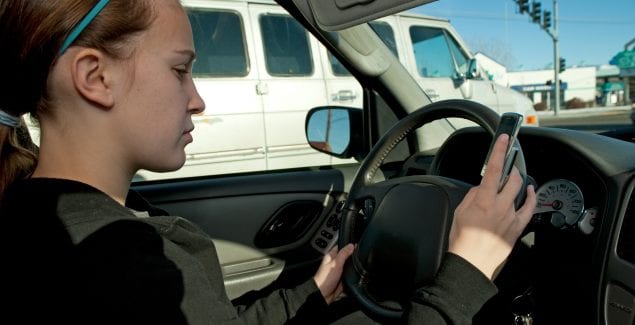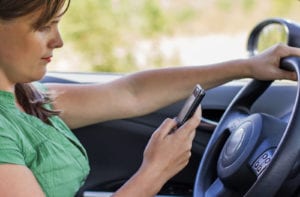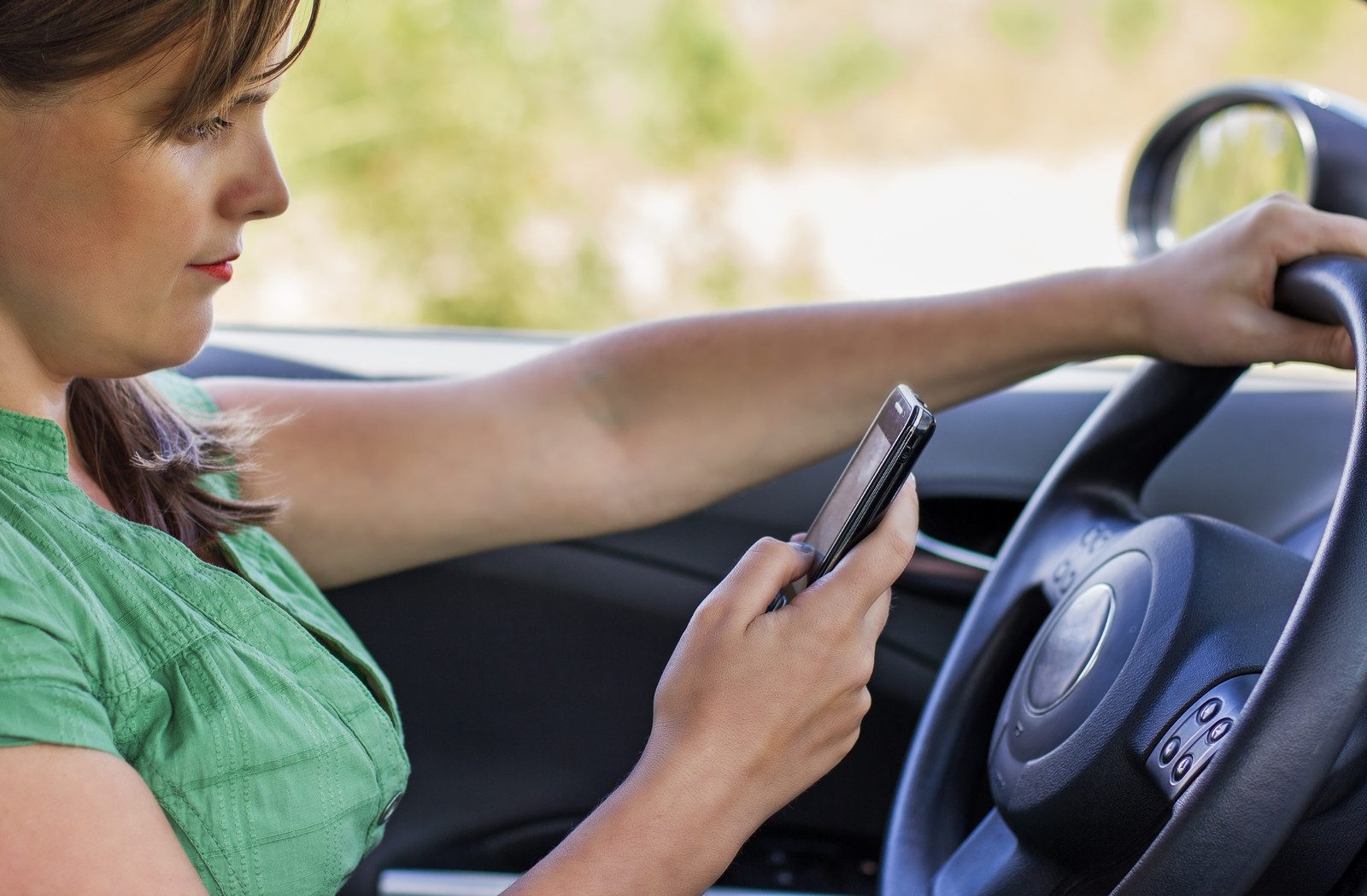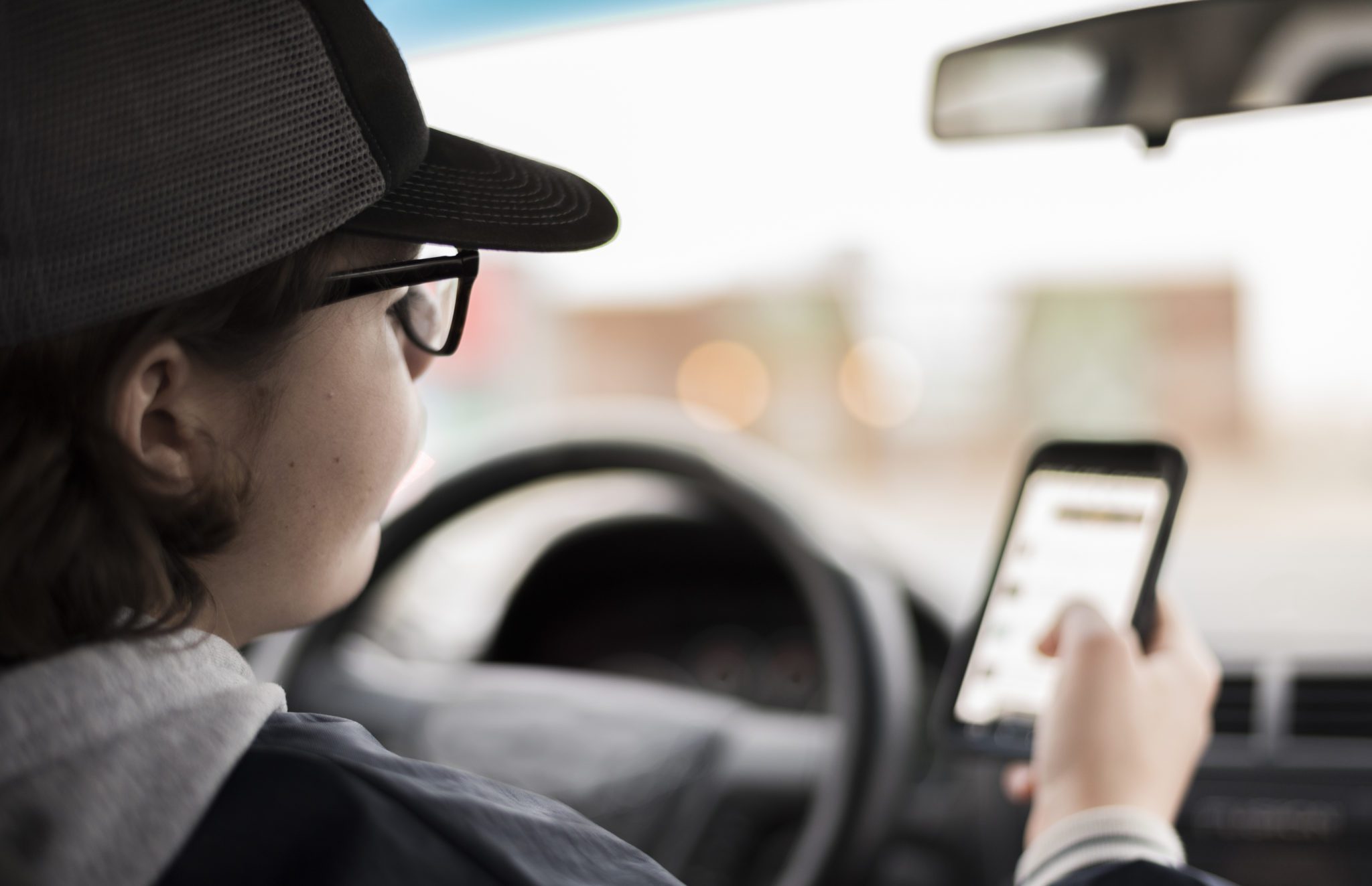Older Not Wiser: Senior High School Drivers Take More Risks Than Younger Teens According to New Study

Posted in: Hot Topics, Parenting Concerns, Teenagers, Young Adults
Topics: Behavioral Issues
Back to school.
For seniors, it’s often a stressful time as they prepare for a new era in life after high school, but also one of enthusiasm as they feel a greater sense of confidence and autonomy.
It’s also a time parents worry more – about their teens’ future and about risky behaviors. And while worries about sex, drugs, and rock n roll often top the chart, a new study by Liberty Mutual Insurance and SADD (Students Against Destructive Decisions) adds driving to the list.
The study of 2,800 teens and 1,000 parents of teen drivers revealed that 75% of seniors are overconfident compared with 55% of sophomores and perceive themselves to be safer drivers, even though they had almost twice the number of accidents or near misses.
Though Liberty Mutual and SADD found in a previous study that teens recognize using smart phones and apps while driving is distracting and dangerous, teen driving behavior is not in line with what they believe. And worse, as teens get older, their risky behavior escalates.
“We can’t just blame teens and parents. We are all captives of the digital age. We’re driven to distraction by the compelling nature of apps, texts, notifications and social media.”
Here are some of the survey results:
- 71% of seniors are likely to use a phone while driving, compared to 55% of sophomores. This is most likely at a stop sign or in stop and go traffic
- 67% of seniors admit to using apps (music, navigation apps) at least sometimes while driving, compared with 49% of sophomores
- 47% of senior drivers report having three or more passengers in the car, compared with 31% of sophomores
- 35% of seniors say they speed, compared with sophomores (18%)
Shocking?
Not really. One could argue that new drivers are more vigilant, cautious, aware of distractions and afraid of accidents. And while this may be true, the fact that 57% of seniors have accidents or near misses should reinforce caution. Seniors should know better. Given their accident rate, shouldn’t they learn from experience? Obviously, they don’t.
The Challenge for Teens
The teenage brain is not yet wired to fully learn from experience or even from knowing what is right. After all, they admit that phone use is distracting. They know this is true.
But the brain is not entirely developed until about age 26. While the higher levels that house knowledge, reasoning and logic are quite mature at younger ages, the neurons connecting the emotional centers – the ones driven by impulse – don’t get fully connected until the mid-20s. So, teens live more in the moment, and feelings present rule the day. Hence the contradiction between knowledge and behavior.
To add to the complexity of the situation, high school seniors are treated with increasing trust by their teachers, parents, coaches and other adults in their life. They assume greater responsibilities, as team captains or supervisors of younger siblings. And, in fact, they are more competent to do so.
Going a bit further into this developmental scenario, seniors are more likely to feel a sense of invincibility. It’s normal for them to feel invulnerable. And they do take more risks in general – socially, academically, and athletically. Risk taking is part and parcel of adolescence, and when successfully navigating a new challenge, teens further enhance their learning, skills, and sense of competence.
Consequently, they have a greater sense of confidence.
But this coming together of an immature brain driven by impulse, increased responsibilities reinforced and supported by adults, and newfound feelings of power and capacity is – excuse the pun – an accident waiting to happen.
The fact remains that behind the wheel, senior are inexperienced drivers. Their perception is not in line with the reality of real safety on the road.
The Challenge for Parents
The plot thickens.
Teens of all ages look to their parents as role models. As much as they may resist authority or think they know all the answers, they still watch their parents closely.
In this and the previous study parents reveal they do not set great examples for safe driving. Around 80% of parents admit using the phone while driving, including for calls, texting and app use. And teens report that they let their parents know this is not safe!
Despite the increases in senior accidents, parents tend to relax consequences for seniors compared to sophomores. Nearly 70% of teens ages 15 and 16 say they would lose their driving privileges if they were in an accident, but only 55% of teens 18+ believe they would experience the same consequence.
Add all this up and it is nothing short of a perfect storm.
But we can’t just blame teens and parents. We are all captives of the digital age. We’re driven to distraction by the compelling nature of apps, texts, notifications and social media. It’s really hard not to look at your smart phone and take your eyes off the road. And even the slightest glance could prove fatal.
Tips for Parents and Teens
- Open the door for conversation. Parents should not lecture, but talk with their teens about each other’s driving practices. It may be useful to use the Liberty Mutual and SADD Teen Driving Contract. We know behavioral “contracts” don’t really work. But the point of the contract is not to establish a law, but rather serves as a means to discuss safe driving practices that are the same for teens and parents. These discussions will also help parents worry less.
- Hold each other accountable. Rules are rules, and the same ones apply for teen drivers and parents. Use your observations about each other’s driving and permit pointing out unsafe practices in the moment. Beyond talking, you can use the Liberty Mutual driving app, HighwayHero that scores driving based on phone use, speeding, hard breaking, and acceleration. Compare scores. Make safe driving a game or even a competition.
- Keep practicing. Nearly 40% of teens say their parents stop practicing driving with them after they get their license. But learning does not end with a license in hand. All new skills require continued learning, particularly in novel situations.
- Reward safe driving. While punishments are crucial for irresponsible behavior and the consequences need to be set in advance, research shows that teens and adults tend to do better with rewards. This may be played out by increases in allowance, bonuses, or even extended liberties that acknowledge safe driving practices.
- Encourage high school seniors to mentor new drivers. There is no better way to reinforce what seniors know to be safe driving practices than to help them assist in mentoring new drivers. This may be done in the family or with friends, of course, with parent supervision. Peer mentoring is an excellent way to help both seniors and their mentees mutually minimize risks.
- Set clear expectations for mobile devices in the car. As part of your conversations, set clear guidelines for use of apps, texting, and calls when driving. And this goes for teens and parents. Keep the phone out of reach. Set GPS and navigation apps for destinations in advance and use voice commands; program playlists for music so scrolling is unnecessary; if you must use the phone pull over, or give it to a passenger who can make your call or text; turn off notifications, so you are not tempted to look away from the road.
If we follow these guidelines and are transparent in our driving practices, both teens and parents will benefit. Distracted driving is not an option.
Improved awareness of our digital temptations, and establishing good driving practices is essential.
Lives will be saved.



 Share
Share Tweet
Tweet




